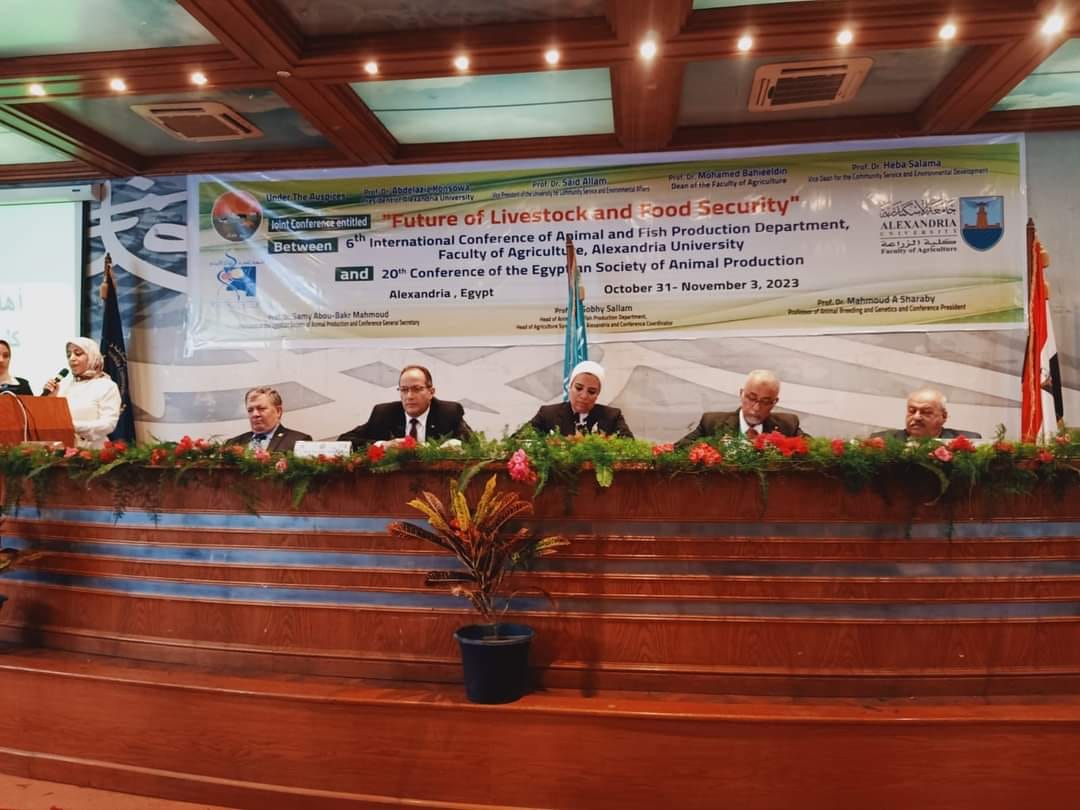
Under the auspices of Professor Dr. Abdelaziz Konsowa, President of Alexandria University, the Sixth International Conference of the Faculty of Agriculture was held under the title “The Future of Livestock and Food Security,” organized by the Department of Animal and Fish Production at the Faculty of Agriculture in cooperation with the Egyptian Society for Animal Production. The conference lasted for three days, in the presence of specialists from Egyptian universities and research institutes, as well as various Arab and foreign universities, former vice presidents of the university, deans and vice deans of agricultural faculties from Egyptian universities, and public figures from the Fisheries Resources Authority and the Food Safety Authority.
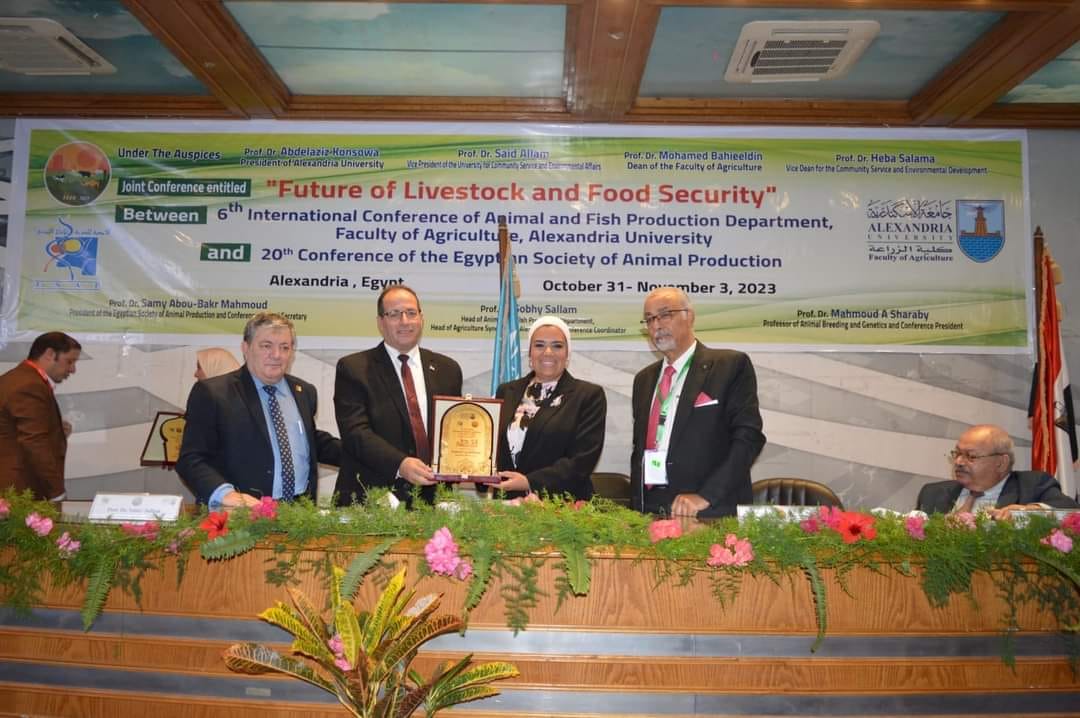
Dr. Mohmed Bahey El-Din Mohamed, Dean of the Faculty of Agriculture, indicated that the conference activities included discussing many important issues, most notably food security. He explained that the sessions discussed several topics related to sustainable development goals in light of climate change and water scarcity, reformulating the livestock strategy and correcting its path to provide animal resources, as well as the reality and future of the poultry and fisheries industry, the focus of modern technologies, linking and intersecting sciences, and their role in improving the performance of farm animals and their production efficiency.
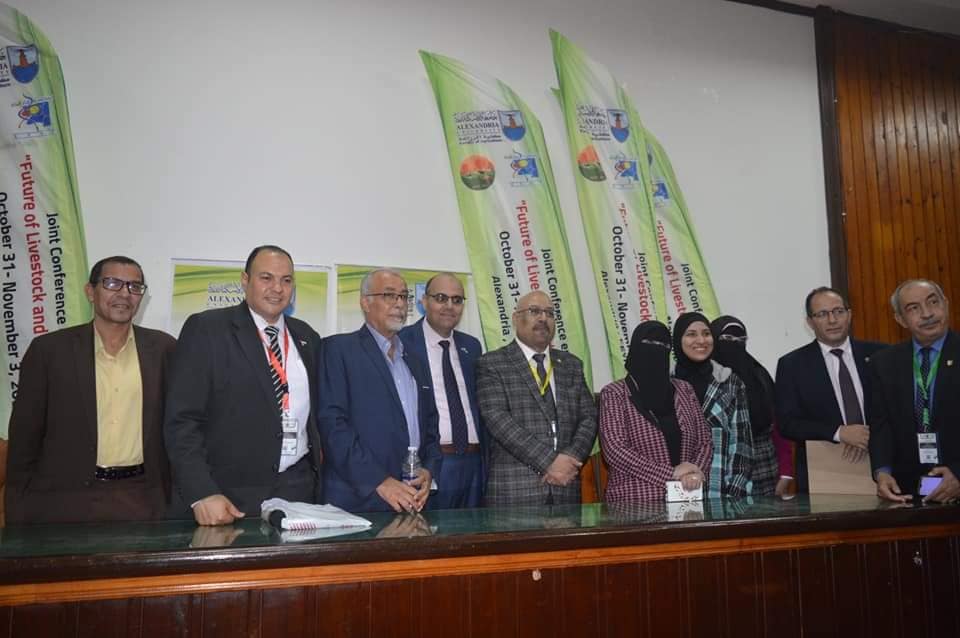
Dr. Heba Sabry Salama, Vice Dean of the Faculty of Agriculture for Community Service and Environmental Development Affairs, indicated that more than 300 professors from universities, institutes, research centres and those interested in livestock participated in the conference. The activities included a workshop on industrial applications of nanotechnology and microbiology for the sustainable development of livestock in light of climate change. The conference also included online scientific sessions in which professors from Spain, China, Japan, Mexico, and Turkey and a group of university and research centre professors participated. Sessions were also conducted on fish farming and the use of magnetic water technology on the performance of farm animals.
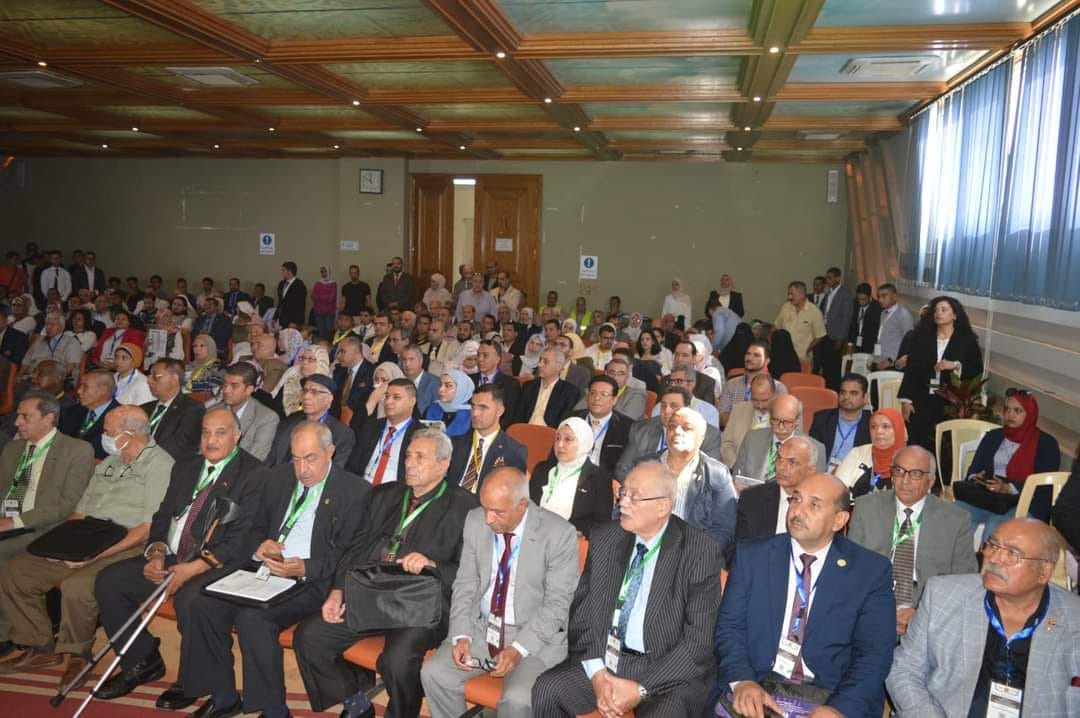
Dr. Heba Salama also indicated holding a session on poultry wealth and modern techniques in animal nutrition to maximize productivity of farm animals. She added that the conference’s recommendations emphasized the necessity of making optimal use of research related to what is known as gene expression, transcriptomics, and propium in improving the productivity of farm animals, while adapting the rapid development in estimating the outcomes of various metabolic processes to benefit from this in achieving sustainable development of livestock, especially after it has become a necessity with the increase in conducting research related to the genetic improvement of Egyptian animals as a main means to achieve sustainable development of livestock, poultry and fish wealth. The conference also recommended the need to take quick executive measures to establish a gene bank or local animal genetic assets, and work to complete the production chain of the poultry industry, whether in the commercial or rural sector, in order to ensure the continued sustainable development of this important component of the livestock sector, which represents the fulfilment of an important part of individuals’ needs for animal protein, with the need to pay attention to reducing the intermediate links in marketing poultry and its products, which contributes to reducing the cost of production and lowering prices.
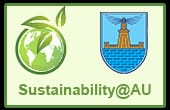
 English
English